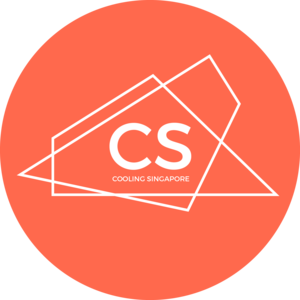- AquaCycle
- Proteins4Singapore
- Singapore's Pathway to Carbon Neutrality
- CellFACE
- LightSPAN
- Computational Modelling Group
- Energy and Power Systems Group
- SITEM - Singapore Integrated Transport and Energy Model
- Past Projects
Cooling Singapore
OverviewThe UHI (urban heat island) effect has become a matter for increasing concern because of its many, mainly negative, effects upon the quality of urban life. These include reduced thermal comfort for urban dwellers, and increased noise, air pollutants and greenhouse gas emissions. In tropical Singapore, increased temperatures due to UHI negatively affects the liveability and thermal comfort of residents. Many of these problems are likely to become more severe in the future, partly because of urban growth but also of the impacts of climate change upon cities.
Reducing the UHI effect will bring considerable benefits to Singapore, measurable not only in economic terms but also in the improved health and wellbeing of citizens. Achieving a substantial and lasting reduction, however, will be a complex undertaking that necessitates an all-of-government approach, since it will have implications for planning, transportation and construction, as well as patterns of individual consumption. Such an undertaking must be based upon the best scientific information, and new research will also be needed in areas where existing knowledge is insufficient. It will require a consistent commitment over an extended period and close coordination among stakeholders in government, the research community and private sector. Finally, addressing the issue of UHI will directly contribute to two of Singapore's policy goals concerned with thermal comfort and meeting the COP21 goals to the reduction of greenhouse gases.For all these reasons, Cooling Singapore project aims to develop a roadmap to guide the emerging strategy.
Objectives

Science and Facts
We aim at defining a suitable metric to measure thermal comfort. This metric encompasses the idea of how comfortable or uncomfortable a particular location is. We will generate a map of Singapore, indicating the areas that are most affected by the UHI in terms of thermal comfort.

Design and Gaps
We aim at identifying viable mitigation strategies and evaluating their expected effectiveness in reducing the UHI effect in the hotspot areas. We will systematically identify knowledge and technology gaps to guide our efforts to develop a roadmap for UHI-related R&D activities in Singapore.

Policy
We aim at establishing a UHI task force together with local key players related to UHI in the public and private sectors. We aim at creating reports documenting our findings and discuss them in workshops and events involving the various stakeholders.

Prototype Development
We will develop a tool prototype to support the research and roadmapping activities in this project as well as to make it easier for third parties to use the developed models.
Expected Outcome

Roadmap with Actionable Knowledge
We aim at developing a number of scenarios, combining long-term and short-term UHI mitigation measures to illustrate possible ways towards improved thermal comfort.

Roadmap for R&D Activities
We aim systematically identifying knowledge and technology gaps, which will help to steer future R&D activities in Singapore.

UHI Task Force
We will convene a task force of UHI experts from academic and government to exchange knowledge, share insights, and discuss scenarios for improving thermal comfort in Singapore.

